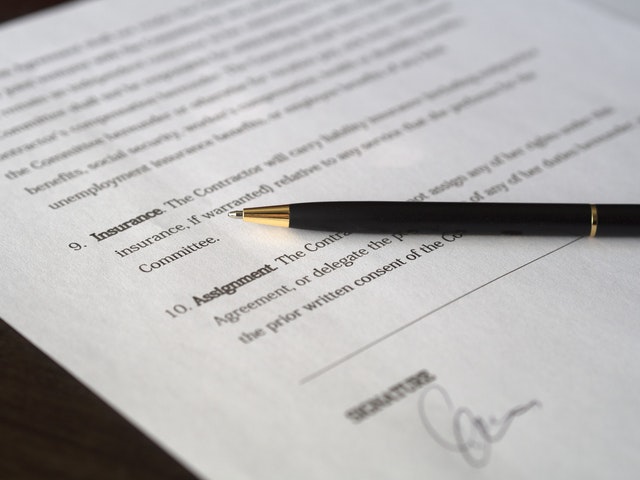HSE COVID-Secure Spot Checks Continue Throughout UK
As Greater Manchester and South Yorkshire move into tier three of lockdown, the Health and Safety Executive will continue to operate safety inspections to check for...
Read Full ArticleAs the UK goes in and out of lockdown, the legal system is braced for a sharp increase in contractual disputes. So much so, that the Cabinet Office has expressed concern, and urged mediation as an alternative.
Jason Smalley from The Legal Director runs through various scenarios, looking at what businesses will want to do in order to protect its position in the event of contractual breaches and disputes.
Smalley is a General Counsel providing expert, strategic legal support and advice to businesses across all sectors. He has vast experience of working on projects from the very large to small-scale within the Energy, Nuclear, Construction, Engineering and Building Materials industries. He has a proven track record in consultancy and legal operations and has been appointed at Board level as a director in the UK and Ireland for over 200 companies. He has previously been a Pension Trustee and FCA accredited. He is also security cleared by the MoD for Nuclear projects.
"Whatever the much-vaunted “new normal” looks like, the chances appear high that many businesses will find themselves locked into pre-pandemic contractual agreements that no longer appear appropriate for a post-pandemic business environment."
It’s been described as a “tsunami of litigation.” Others have called it a “deluge of disputes.”
The Cabinet Office, no less, has put out a paper calling for businesses to act responsibly and fairly in the national interest, when performing or enforcing contracts in relation to COVID-19. And two former Supreme Court judges have urged mediation as an alternative to lawsuits.
In short, it appears that post-pandemic, the legal system is bracing for a tidal wave of contractual disputes.
But will such calls for reasonable behaviour and mediation carry much weight? As part-time legal directors for business, we’re not holding out much hope. For as the country slowly comes out of lockdown, signs of that sharp increase in litigation are already building—as several of our clients can attest.
Whatever the much-vaunted “new normal” looks like, the chances appear high that many businesses will find themselves locked into pre-pandemic contractual agreements that no longer appear appropriate for a post-pandemic business environment.
Let’s be blunt. There are two scenarios that apply.
The first is where COVID-19 genuinely has adversely impacted businesses. Delayed construction projects, for instance. Or shuttered pubs, restaurants and leisure centres unable to pay their quarterly rent. Or purchasing contracts now massively excessive for the post-pandemic level of actual demand. It’s not difficult to see instances where a party to a contract might seek to exit or alter a contract, perhaps by claiming force majeure.
The second scenario, though, is where COVID-19 is simply being used as a convenient excuse—a means of conveniently escaping from contractual agreements with which one of the parties had already become unhappy, pre-pandemic.
A difficult employee, customer, or supplier, for instance.

Picture: a photograph of a contract
In both cases, the Cabinet Office’s advice applies: be reasonable, be fair, think of the national interest, and consider mediation rather than the force of law.
Lofty ideals, you might think. But as commercial and business lawyers, we understand more than most that there are few real winners from a case that reaches the courts.
Settlement of some sort beforehand is usually a far better option—and as legal directors, we try hard to reach those settlements.
But they aren’t always possible. So as coronavirus-related litigation starts to increase, what can businesses do to protect their interests?
Again, there are two scenarios. First, it’s your business that is the one on the receiving end of another party’s attempt to exit or alter a contractual agreement as a supplier. And second, it’s actually your business that is the one seeking to exit or alter a contractual agreement as a client
Let’s look at both.
The key things here are to be proactive, and to think ahead in terms of mitigation.
Typically, a party will already be in breach of contract, or be making it very clear that they are likely to be in breach of contract. So it is important to understand what you must do in response, and also to be proactive in doing it.
If the contract states that you should write to the other party, for instance, informing them that they are in breach, then you should think carefully before doing so because you might risk being in breach yourself. Equally, there might be stipulated notice periods or break points: understand the mechanisms of the contract, and make sure that your business at least is following them.
Mitigation in the event of a breach is also important: if the case reaches court, a judge will almost certainly ask what was done to mitigate any loss caused by the other party’s breach. Clearly, you’ll want to demonstrate such a loss—otherwise there is no case—but equally, you’ll want to be able to demonstrate the steps that you took to minimise the severity of the loss.
Key checklist questions:

Picture: a photograph of Jason Smalley
Here, the key thing is the early involvement of a business contract solicitor, to inspect and advise on the contractual obligations in question plus provide assistance with strategy. There may be notice periods to observe, or break points, or relevant force majeure clauses.
And if a relevant “notifiable event” is applicable, then there will be a prescribed period in which that notification should take place. Don’t miss out by accident: be proactive.
Key checklist questions for commercial or business contracts:
In businesses all over the UK, contractual agreements are being examined and assessed. Contractual commitments that were acceptable pre-pandemic may no longer be so—and awkward decisions have to be made.
Lawsuits are costly, and time-consuming. The Cabinet Office is rightly discouraging businesses from excessive litigation that would clog the courts. There was a backlog in the judicial system even pre-COVID-19 and latest figures suggest this level of delay has increased even more.
With the right legal advice, a different prize is on offer: constructive engagement, and an outcome that satisfies both parties without recourse to litigation.
And as commercial lawyers, we understand more than most the value of such a result.
Disclaimer:
Please note that the information and any commentary on the law contained in this article is provided for information purposes only. Every reasonable effort is made to make the information and commentary accurate and up to date, but no responsibility for its accuracy and correctness, or for any consequences of relying on it, is assumed by the author or the publisher.
The information and commentary does not, and is not intended to, amount to legal advice to any person on a specific case or matter. You are strongly advised to obtain specific, personal advice from a lawyer about your case or matter and not to rely on the information or comments in this article.
Picture: a photograph of a Judge's gavel
Article written by Jason Smalley | Published 26 October 2020
As Greater Manchester and South Yorkshire move into tier three of lockdown, the Health and Safety Executive will continue to operate safety inspections to check for...
Read Full ArticleAs Greater Manchester moves into the highest tier of lockdown restrictions, we look at what this actually means for residents and businesses. Manchester will move to a...
Read Full ArticleWith COVID-secure guidelines set to become a legal obligation, Bureau Veritas has advised that facilities managers must step up with a more robust and formalised...
Read Full ArticleIn an address to MPs today, Boris Johnson has tightened COVID-19 restrictions in England, calling on people to work from home where possible and pausing plans for...
Read Full ArticleLeisure and hospitality venues in England are legally required to enforce the rule of six from today, or risk a fine of up to £4,000. Designated venues will also...
Read Full ArticleMinisters have announced that businesses in England that are required to shut because of local interventions will now be able to claim up to £1,500 per property...
Read Full ArticleBoris’ new rule of six doesn’t apply to workplaces, but how might the tightening of lockdown measures affect general confidence when returning to...
Read Full ArticleNew quarantine restrictions on people returning from Spain may have implications for UK employers. On Sunday 26 July 2020, Spain was removed from the travel corridor...
Read Full ArticleBoris Johnson has just announced additional easing of the lockdown in England, including changes to the two-metre social distancing rule. In Parliament today, it was...
Read Full ArticleAs we start to look towards a post-lockdown environment, a new appreciation of the key role that FM providers play has emerged. In the third of this...
Read Full Article